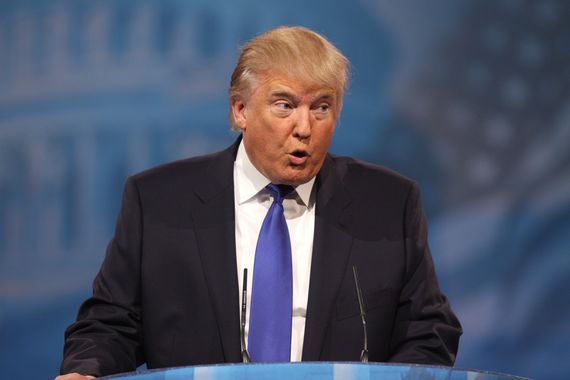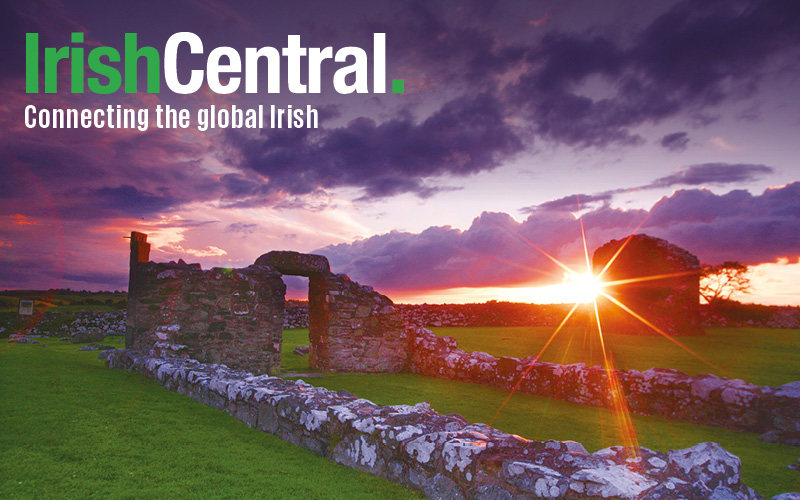Few people have done more to change the face of modern Ireland over the last half-century than our former president Mary Robinson.
Now she talks to IrishCentral about her position at the head of the global climate change fight, and her new book "Climate Justice, Hope, Resilience and the Fight for a Sustainable Future" (Bloomsbury) that puts a human face on that struggle.

Let's start with the bad news: There are three hurricanes tearing up the Atlantic this week. The Tropics have gone wild, with increasingly deadly results for all in their path.
Meanwhile, if you took a trip to Ireland this summer you will have witnessed something that few have ever seen there before: drought, with temperatures soaring above the one hundred Fahrenheit mark.
Something is going wrong globally, and it's time we admitted it. Former President of Ireland Mary Robinson is one of the world's most respected leaders. As United Nations High Commissioner for Human Rights and now UN Special Envoy on Climate Change, when she talks the world listens.
In her latest book "Climate Justice, Hope, Resilience and the Fight for a Sustainable Future" she shares the stories of ordinary people affected by climate change, giving their voices the strong signal boost that only one of the world's most internationally respected leaders can. So the first question is probably the most obvious, why this subject and why this unique approach?
“It's very much from my conviction that nobody will really get engaged unless we tell the human stories,” Robinson tells the IrishCentral's sister publication, the Irish Voice.
“We have tried statistics, we have tried various other ways but I believe now that it's telling the human story from the perspective of hope and resilience and the fight for a sustainable future is the way to do it.”
Who wants to be told that their home will one day flood, or burn, or be engulfed by extreme weather if they don't act now? People are busy. Climate change seems like someone else's problem.

“I agree with you. It can seem too challenging and hard to address. But one story I like from the new book is a tale from a more developed part of the world about what can be done (particularly by women) The women in question is called Natalie Isaac in Australia. I have seen her build up her one million women project to address what people can do at home. At the start, she thought it would be easy. She was a marketing person and she wanted to impart what people can do by reducing their own family budget and being more efficient without losing out at all in family life. She thought everyone would jump in.”
But for most people hearing her message was just another add-on in an already too busy life, Robinson admits.
“If you're too busy you don't take it to heart enough, so she had to work really hard, and now she put together a really good app to help people and she has found the traction finally. I love that story because that's what we need. Everybody, particularly women, mothers in the home, who can help change behavior and can control what happens in shopping and consumption to a very considerable extent, to encourage children to be more aware of their environment as they grow up.”
Robinson says she was lucky to come across wonderful people in her work for the climate justice foundation that bears her own name, and so in her new book and her activism, she has tried to capture a range of different perspectives.
“I feel very much for Anati Ton, the former president of Kiribati (pronounced Keribas) an island republic in the central Pacific who I got to know very well as a committed leader and a very moral man. He had an experience I never had. I never had to tell the people of Ireland that sea level rise might mean we mightn't have any future. There might not be a sovereign Irish state.”
Imagine having that burden on your shoulders, Robinson asks?
“He had to live with that. When he came to the 2009 Climate Change Conference in Copenhagen he was very disappointed (by the dropped goals) and when he went back to speak to his people in Kiribati he didn't want to tell them. Instead, he bought land in Fiji so that his people could migrate with dignity. But then gradually he started to fight back. Climate change is not inevitable. People can take steps now to stave off climate disasters later. He's proof.”

President Donald Trump is clearly not listening to her message. Last year he vowed the United States would cease all participation in the 2015 Paris Agreement. It's a reminder that America is profoundly politically divided at the moment and ideology has been weaponized, so how do ordinary people find consensus to approach this issue to offer a unified response when already there's so much division in our politics?
“Well as it happens I'll be working with others on that very issue this week at the California Climate Summit,” Robinson replies. “From the beginning of Trump declaring that he was pulling the United States out of the Paris Agreement (which of course he can't do until November 4, 2020) it was very encouraging to see the broad coalition of states and cities and civil societies and universities and trade unions and ordinary people stood strong.”
And the political divide? “There is that divide but I do not personally believe that many people now can possibly claim that they don't believe in climate change. I think anyone who is saying it is in the pocket of the fossil fuel lobby and are doing it for short-term financial gain at the risk of the future of our children and grandchildren.”
Alongside the new book, to reach a new demographic Robinson is taking her message out of her own comfort zone.
“I have just brought out a podcast called Mothers Of Invention and the byline is that climate change is a man-made problem and requires a feminist solution.
“But I also make it clear that 'man-made' includes women and a 'feminist solution' does not exclude men. It means searching for solutions based on equality, fairness and justice and bringing out the human-centered approach to how we address these issues including the government policies we need and the urgency of being more serious about climate that we need.”

The podcast was conducted by comedian Maeve Higgins and it became an overnight sensation. Did she anticipate that?
“I did the book first, then I did the podcast with Maeve Higgins and I actually had to ask what a podcast was because I'm an elder,” she laughs.
“I didn't know Maeve and when I met her I wondered if I should be discussing such a serious subject with a comedian, come on? But it worked so well and I am very motivated now because I wake up every morning thinking about the fact that we are not on track for a safe world and nothing could be more important. That gives me plenty of energy to do what I can to get the voices out and I think stories are the key now.”
2016 and 2017 were the warmest years on record and the projections for climate change over the next five decades are truly sobering. What are the grounds for optimism?

Mary Robinson
“I have great hope indeed of young people responding to the issue. There's an organization called One Young World and I took part as one of their ambassadors and they have inaugurated a Mary Robinson Climate Justice Prize and I was interviewing the three finalists (one from Honduras, one from Ecuador originally and one from the United States) and the projects they were involved in were so heartfelt and encouraging.”
In Ireland Robinson has an unmatched legacy of activism and advocacy, she has changed how we think of the Irish presidency and the work that can follow on from it. How does she feel about the social changes that we're witnessing there now?
“I agree that there is much to be proud of in the way that Ireland has developed in an openness, in the arts, in the two referenda recently and particularly in the way young people came home to vote and took on the issues like same-sex marriage and removing the ban on abortion, issues that they helped take ownership of.
“Sadly on the climate side Ireland is not showing real leadership, indeed the Taoiseach Leo Varadkar said in Parliament not so long ago that Ireland is something of a laggard in climate change and we have to do something about it.
"We are not on course at all to meet our commitments under the European Union but I think that particularly after this unusually hot summer in Ireland of drought and heat we're agreeing that we must do more on climate. We need the policies, that's more political than I can be as a former president but we do need to change much more dramatically than we're doing.”
Climate Justice, Hope, Resilience and the Fight for a Sustainable Future (Bloomsbury, $18.20)




Comments